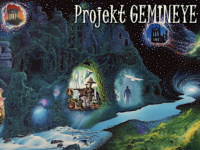When Mark Wingfield and Markus Reuter make music, they aren’t exactly sure what’s going to come out. Could be melodic, could be abrasive. Maybe it’s jazz, maybe it’s more classically inclined. Perhaps it rocks, but whatever it is, it is rolling out of the two musicians at a rapid pace.
Reuter and Wingfield, a.k.a. TEAR, have released seven albums so far of their (semi)improvised, genre-hopping music, melding guitars, basses, touch guitars, electronics and technology. “It’s hard to define,” Reuter says. “It’s modern guitar-based music. A guitar duo is still the basic idea.”
Reuter, based in Berlin, and Wingfield, in the UK, have continued to collaborate via the web during the pandemic. Though it’s become commonplace for musicians to exchange files via email or applications like WeTransfer, much of their joint work has been done live on the internet. “We’ve been doing it over Zoom,” Wingfield says.
The technical challenges inherent in that approach have in themselves produced musical statements. Reuter said due to the web-based communication, their musical responses to one another have a built-in latency that is included in their final product: “We said, ‘Let’s try to do a session over the internet. Then we started experimenting.”
Wingfield adds: “For me, it’s going into a space where you don’t know what will happen.”
So, the two aren’t sure where things will go when they start a session. Reuter might grab a touch guitar, while Wingfield picks up his electric guitar with a phalanx of pedals. One may start with a drone and another improvises a melody over it.
It’s always something challenging. “We had played together before TEAR, but the fact we couldn’t meet together (in the studio) brought about this band,” Reuter says.
They don’t even necessarily agree on the duo’s name. Wingfield pronounces TEAR – all caps please – as teer (rhymes with beer), while Reuter said he thought it rhymed with bear. The recordings themselves sport names like Breach, Incognita, City of Memories and Secret Music.
On a number of the tracks, Markus Reuter and Mark Wingfield jet onto the freeway pioneered decades ago by Robert Fripp and Brian Eno. That duo’s initial recording, No Pussyfooting, found tension amid the tape loops and nascent Frippertronics, and it’s clear TEAR have learned that lesson. Wingfield sounds positively Frippy at times amid the background sonics on “Tarquahet Core” from the recording of almost the same name. “Misty Iron” from City of Memories also has that sense of edginess, of danger ahead.
At other points, the music is more melodic, recalling instrumental progressive rock or fusion. There may be some world music elements involved, or metallic overtones. And like the weather, if you’re not into it at first, just give it a few minutes and it will likely morph into something else.
So how do they actually collaborate? Are things written out, do they agree on a key or tempo, or what? “We don’t discuss it. We just kind of start,” Wingfield says, drawing a laugh from Reuter.
Despite that amusement, the duo see what they do as serious work. “What Mark and I do is serious in intent. We take the music seriously,” Reuter says. Just not always themselves.
That’s somewhat evident in the artwork accompanying the music. It resembles nothing so much as claymation – think Wallace and Gromit or Peter Gabriel’s “Sledgehammer.” It’s done by Italian artist Marta Sesana, and it only adds to the unique atmosphere of the projects.
Reuter said before one session Wingfield sent Reuter a couple emails with ideas. They might set up rules or suggestions. “One was to imagine a third of a museum of empty space. Another was sheets of sound,” Wingfield says. He puts a lot of time into developing just the tone and timbre he is looking for: “It’s an extension of my guitar sound and some software. It’s part of the compositional process. When we play, I have a palette of ideas.”
Reuter says his process is similar: “For me, it’s which tools (to use). One time I didn’t want to do any processors. Next time, it was go to the basement and pick up an older piece of equipment. I try to change the setup and keep things fresh.”
Whatever process, programs or instruments they use, the music comes out sounding like nothing other than TEAR. “I would like to call it jazz, but unfortunately that definition got stuck. For me, jazz was always breaking the rules,” Wingfield says.
Reuter’s description of their music is more expansive. “Jazz, European classical, rock, progressive rock … Indonesian, Indian, Chinese – it draws from it all,” he says. Though Reuter allowed he didn’t disagree with Wingfield’s personal definition of jazz: “I have to say I understand and think jazz should be like that.”
And if there isn’t enough breadth in the seven TEAR albums, both are active as solo artists, plus Reuter is a member of the Stick Men trio alongside Tony Levin and Pat Mastelotto. Most of their music, including all the TEAR efforts, is on the MoonJune label and available through BandCamp.
So there you have it. Pick a genre, any genre. Then listen to TEAR and somewhere along the way you’ll likely find echoes of it in their music.
- Gregory Porter, Samara Joy, John Paul McGee + Others: 2023’s Seasonal Sounds - November 30, 2023
- John McLaughlin’s Shakti – ‘This Moment’ (2023) - July 14, 2023
- Rolling Stones – ‘GRRR Live!’ (2023) - March 30, 2023




